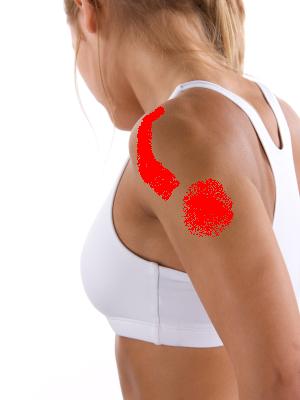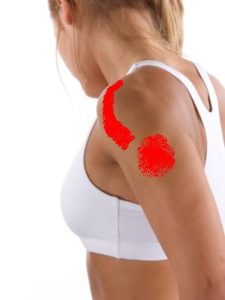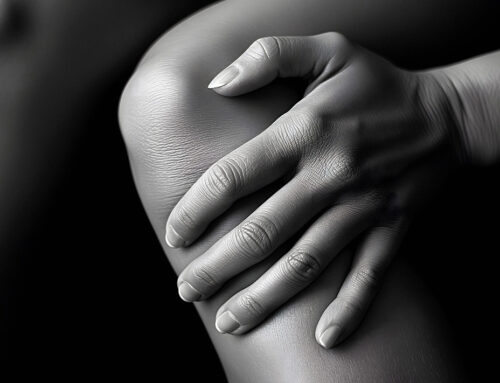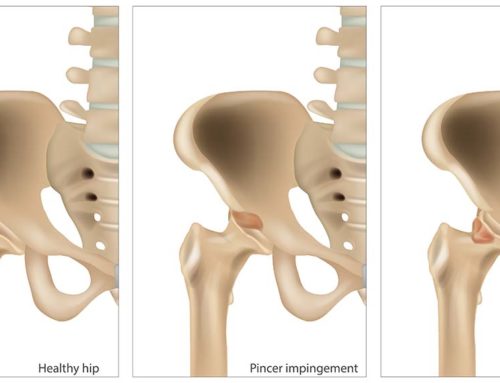Rotator Cuff Degeneration
Many people don’t realize that our shoulder muscles (in particular the rotator cuff muscles) can wear down with time. The concept of rotator cuff degeneration is now a well established explanation for shoulder pain for many patients over the age of 40.
Rotator Cuff Injury is Progressive
There are different theories as to how the aging rotator cuff gets injured. Sure, there can be a spectacular event which initiates all the pain, but there doesn’t have to be. For many people, an “event” of injury is what they relate the symptoms to, but there was years of tendon degeneration already occurring which perhaps made the injury inevitable. Tendon degeneration can be considered progressive. Over time it gets worse and worse, where at the far end of progression is a complete tear of a rotator cuff tendon.
Causes of Rotator Cuff Degeneration
The factors that cause rotator cuff degeneration can be divided into two main categories; intrinsic factors and extrinsic factors. An example of an extrinsic factor would be a surrounding structure compressing a rotator cuff tendon, whereas an intrinsic factor would be that the tendon is degenerating because of the inherent characteristics of that tendon itself. This may be a little too technical for our average reader, so we’ll just review some of the basic reasons our shoulder muscles (namely the rotator cuff muscles) degenerate. This may assist you in learning how to keep your shoulders healthy!
Tendon Compression
Rotator cuff tendons are susceptible to degeneration when they are repeatedly subjected to compression. This can occur for various reasons. Some of us have a unique shape to the bones in our shoulder which can lead to tendon compression. For others, degenerative arthritis (and the bone spurs related to arthritis) are the real problem. These bone spurs have the ability to compress muscles and tendons leading to advanced tendon degeneration. Muscle tightness can also cause problems. For various reasons, some of us get tight in certain areas of the shoulder. This can lead to the development of altered movement patterns in the joint and can eventually cause tendons to get compressed. In each of these scenarios, the tendon gets compressed and is subjected to wearing down or degeneration.
Age Related Shoulder Pain
For many of us, the activities we choose place an enormous demand on our shoulder muscles. This demand can often outweigh the ability of the tendon to repair itself. What results is a net breakdown of the tendon…this is rotator cuff degeneration in a nutshell. Unfortunately age plays a large role. The literature suggests that those people over the age of forty have a reduced ability to keep up with this degeneration / rebuilding process and perhaps explains the prevalence of shoulder pain in those over forty.
Treatment for Rotator Cuff Degeneration
With respect to treating rotator cuff degeneration, it’s important to combine all the information and formulate a plan that reflects your specific situation. For example, if you’re over the age of 40, have bony changes in the shoulder joint on your x-rays, you show altered movement patterns on examination and you like doing dumbbell shoulder press exercises, it may be necessary to get some professional help. Consulting with one of our physiotherapists or chiropractors may be helpful in limiting the rate of degeneration. This can be accomplished through the prescription of the appropriate rehabilitative exercises, guidance with exercise selection or therapeutic treatment using modalities like laser therapy or active release technique.
For more information about our services and the ways we treat rotator cuff degeneration, shoulder pain or shoulder impingement, please call us or email at [email protected].
References
Nho S, Yadav H et al. Rotator cuff degeneration etiology and pathogenesis. American Journal of Sports Medicine. 2008; 36(5): 987-993.
Seitz AL, McClure PW, Finucane S et al. Mechanism of rotator cuff tendinopathy: intrinsic, extrinsic or both? Clinical Biomechanics 2011; 26: 1-12.









